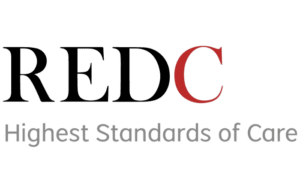As humans, we eat for many reasons. We eat to satisfy our hunger and meet our nutritional needs but also for pleasure and comfort. These reasons for eating are all perfectly okay, but when does eating for reasons other than hunger become a concern? We’ll explore the differences between emotional eating and binge eating.
What Is Emotional Eating?
Emotional eating refers to using food to cope with and manage emotions. It involves eating in response to emotional triggers such as stress, sadness, boredom, or loneliness to feel better. In other words, individuals use eating as a coping mechanism. Below are some contributing factors to emotional eating:
- Difficulty dealing with emotions
- Poor body image
- Dieting and restricting foods
Emotional eating can easily develop into a habit. If you have previously relied on food as a source of comfort, you may find yourself craving food whenever you experience negative emotions. This pattern creates a difficult cycle to break, and you may need professional guidance to manage your behaviors around food.1
What Is Binge Eating Disorder?
Binge eating disorder (BED) is a mental health problem characterized by compulsive overeating in which a person eats large amounts of food in a short period of time and feels that they can’t stop. It’s a mental health condition that may vary in severity but nonetheless requires treatment to prevent serious physical and psychological consequences.
The Diagnostic and Statistical Manual of Mental Disorders (DSM-5-TR) recognizes binge eating as an eating disorder. According to the DSM-5-TR, binge-eating disorder criteria include a combination of the following:
- Recurring episodes of binge eating at least once a week for more than three months
- Eating large amounts of food in a short period of time
- Feeling a loss of control during binge episodes
- Eating quickly
- Eating until uncomfortably full
- Eating without feelings of physical hunger
- Feelings of embarrassment, shame, and guilt after binge episodes2
Eating disorder programs offer several effective therapies to treat binge eating disorder, including psychotherapy (cognitive behavioral therapy and dialectical behavior therapy), nutritional counseling, and medication management.
What are the Differences Between Emotional Eating and Binge Eating Disorder?
Binge eating disorder is formally recognized as an eating disorder by the DSM-V-TR, whereas emotional eating is not. Binge eating disorder includes recurring episodes of binging at least once a week in the mildest cases and isn’t driven solely by emotional triggers but as a way to gain control in one’s life. Emotional eating may only occur occasionally and in response to emotions.
Binge eating disorder is a diagnosable mental health disorder and requires professional intervention for treatment. However, identifying yourself as an emotional eater is still rooted in negative thoughts about your eating habits and disordered and emotional eating, and binge eating disorder can co-occur.
Binge eating disorder may also have more severe signs that are easier to notice
- Leaving evidence of large amounts of food being consumed (food wrappers or containers)
- Hoarding food
- Stealing and hiding food
- Body checking
- Frequent dieting
- Changes in weight (3)
Binging and emotional eating are often reactions to restricting food. Emotional eating can sometimes be a precursor to developing BED, but not everyone who eats emotionally will develop the disorder.
Warning Signs of Emotional Eating
Sometimes, it’s hard to tell if the signs you’re seeing are serious or not or if they are actual signs of an eating disorder. Here are some signs of emotional eating:
- Food cravings
- Overeating or loss of control during eating
- Feelings of shame or guilt about your eating habits
The bottom line is if you’re worried that you or someone you know may be showing signs of disordered eating, it’s necessary to seek professional help from a healthcare provider. Discuss your concerns with a doctor, a therapist, a nutritionist, or a dietitian.
Ways to Cope with Emotional Eating
Identifying as an emotional eater should signal you to take a closer look at what might be going on and the underlying causes contributing to using food as a coping mechanism.
- Monitor what triggers your eating. Were there any stressors or situations that occurred, and were you experiencing difficult emotions?
- Avoid being self-critical. Having self-compassion can help you manage negative feelings.
- Learn new coping mechanisms. Developing tools to help you manage stress (going for a walk, reading, journaling, listening to music, etc.) will allow you to avoid using food as your only coping mechanism.
How to Support a Family Member Struggling with Emotional Eating or Binge Eating
When you first realize you have a loved one struggling with emotional eating or binge eating, you’re likely to feel helpless and confused. It isn’t easy to know what to do or how to help the person you care about. You can’t force them to do anything and you can’t make their decisions for them. However, there are some things you can do to support your loved one.
Educate Yourself
Learn about the specific eating disorder your loved one is dealing with. Understand the signs, symptoms, and treatment options. The more you know about your loved one’s condition, the better you can support them. This knowledge will help you communicate more effectively and understand how to be there for them.
Express Concern, Not Judgment
Approach your loved one with care and concern rather than criticism. Let them know that you’re worried about their health and well-being. Avoid blaming or shaming them for their behavior and they’ll be more receptive to what you have to say.
Listen Actively
Sometimes there isn’t anything you can say to make things better, but listening is a good way to offer support. Allow your loved one to express their feelings without judgment. Sometimes, people with eating disorders feel isolated, and having someone to talk to can be immensely helpful.
Avoid Comments About Appearance
Appearance comments are some of the worst things you can say to a loved one who struggles with disordered eating. Refrain from making comments about their weight, appearance, or eating habits. Focus on expressing your concern for their overall well-being rather than their physical appearance.
Be Patient
Patience is crucial when supporting a loved one who experiences binge eating. Recovery from an eating disorder is a process that takes time. Be patient and understanding. Celebrate small victories and offer continuous support throughout the journey.
Promote Healthy Habits
Encourage a balanced and healthy lifestyle rather than focusing solely on weight or food. This could involve participating in activities together that promote overall well-being, such as various forms of exercise, cooking nutritious meals, or engaging in stress-relieving activities.
Set Boundaries
While being supportive, it’s important to set boundaries to protect yourself. Eating disorders can be emotionally draining, so ensure you have a support system in place as well. This may include seeking therapy or a support group for yourself.
Stay Involved
Stay involved in their life without being intrusive. Continue to express your love and concern, even if they may not be receptive at times. If you pry too much they may shut down, but continue to check in with them and let them know you’re there to support them however they may need you.
Encourage Professional Help
The best thing your loved one can do is seek professional help for their disordered eating behavior. Suggest that they seek mental health treatment from a doctor, therapist, dietitian, or treatment program that specializes in eating disorders. Offer to help find resources or accompany them to appointments.
If you are concerned about your eating habits or thoughts and behaviors surrounding food, it may be time to reach out for help. Find the location nearest you for more information and to find out which eating disorder treatment may be right for you or your loved one.
References
- Mount Sinai. (2022, August 15). Break the bonds of emotional eating. https://www.mountsinai.org/health-library/special-topic/break-the-bonds-of-emotional-eating
- BodyMatters Australia. (n.d.). DSM-V diagnostic criteria for eating disorders. https://bodymatters.com.au/wp-content/uploads/2015/01/DSM_V_Diagnostic_Critera_for_Eating_Disorders.pdf
- National Eating Disorders Association. (2022). Binge eating disorder. https://www.nationaleatingdisorders.org/learn/by-eating-disorder/bed
Author Bio:
Kate Delaney Chen, BSN, RN-BC is a healthcare writer and registered nurse with over 17 years of bedside experience. She specializes in Psychiatric Nursing and Nephrology and currently works at a nationally recognized Inpatient Eating Disorders Program.






